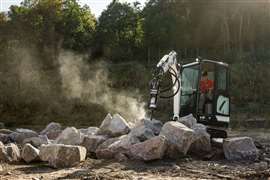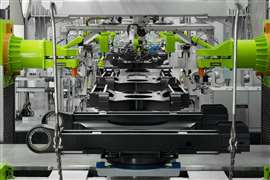Rental market overview
30 January 2019
Whatever your views on the services provided by equipment rental companies – from ‘essential partner’ at one extreme to ‘necessary evil’ at the other – one thing is beyond doubt: the rental market is expanding.
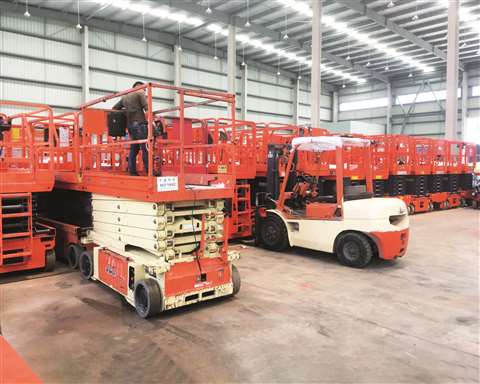
In areas where it is already an established business, growth in rental services is exceeding both Gross Domestic Product (GDP) and construction growth. This is particularly true in the US, where rental has been expanding at annual rates of between 5-7% for the past few years and is forecast to stay at the 5% level for the coming few years.
In Europe, where economic growth levels are lower, rental has still been expanding at around 3% each year, and more in some countries – the highest growth in European countries occurred in France (5.7%), the Netherlands (5.2%) and Spain (5.1%).
Based on figures published by the American Rental Association (ARA) and the European Rental Association (ERA) – the two largest rental industry bodies – the global rental growth rate in both 2018 and 2019 will be between 4.5% and 5.0%. That’s for a market that is valued globally at between US$90-100 billion, with approximately 80% of that generated in Europe and North America.
In markets where equipment rental is just being adopted, rates of expansion in certain rental sectors are truly remarkable. A notable example is aerial platform rental in China, where changes in working practices, an increased focus on safety, and higher labour costs are all contributing to push through growth in the development of rental.
These drivers have meant that annual growth in Chinese aerial platform fleets over the past three years have been in the 20-40% range, prompting one local rental owner – Jimmy Wang, chairman of Shanghai-based China Construction Bright Futures Machinery – to predict that the national access fleet could number one million units within ten years. That would be double the size of the North American access fleet.
Global expansion
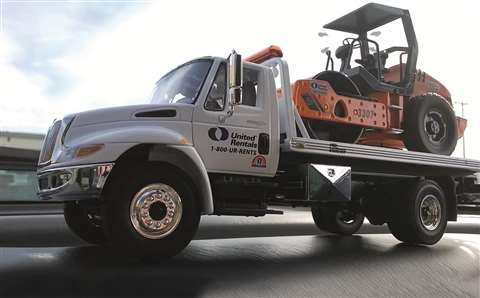
Wherever you look, rental is expanding. The reasons for this are many and varied, depending on where you are in the world and the particular dynamics of that market.
However, one explanation is that, regardless of location, there are certain core benefits of rental. These are clearly voiced by the ARA and ERA: contractors will save money by using rental services; rental provides access to modern equipment; it provides operational flexibility (what you need, when you need it); and can reduce complexity in your organisation – reducing the size of your fleet impacts on activities such as procurement, maintenance, logistics and asset disposals.
These varied arguments carry different weights in different markets. For instance, in Europe it might be operational flexibility and reduced complexity that lead the way. In Latin America it could be that cost reductions are key, together with flexibility in response to market uncertainty, meaning a company doesn’t have to invest in machines that they are not certain will be needed next year.
The ERA has even developed a sophisticated online tool to assess the relative costs of ownership versus
rental, the ERA Calculator: Total Cost of Ownership. The calculator allows any equipment user to input all the costs related to equipment ownership and rental then come up with comparative costs.
It can be found at www.equipmentcalculator.org/en and can be downloaded as an App via the Apple App Store and Google Play, with an updated version due for launch in the first quarter of 2019.
However, perhaps one of the key reasons for the growth of rental is the increasing size and sophistication of rental companies themselves. Consolidation in the rental market has been a key trend over the past 15 years. United Rentals, the US-based company that is the largest in the world with annual revenues of more than US$6 billion, was built through more than 200 acquisitions. This process is ongoing: it acquired one of its largest US competitors, BlueLine, in 2018.
In the US, it is Sunbelt Rentals alongside United Rentals who are making the running in acquisitions – Sunbelt is owned by UK-based, listed company Ashtead Group. In Europe it is two French companies, Loxam and Kiloutou, which are the most acquisitive, closely tracked by Boels Rental in the Netherlands and Cramo and Ramirent in the Nordics.
Different business models
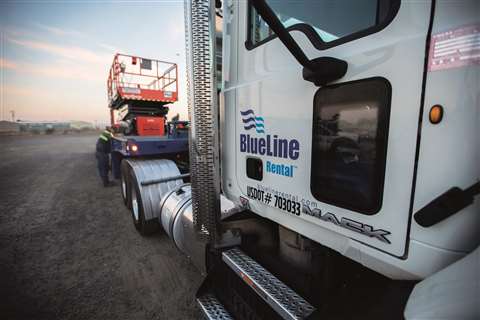
BlueLine is one of the rental companies recently acquired by United Rentals
These are all examples of what are called rental generalists, meaning they rent a very diverse range of equipment. In contrast, there are rental specialists, which focus on one product or service, such as power, temporary accommodation or access equipment. They are also growing, notably Netherlands-based access renter Riwal. It is worth noting that the specialists are often the prime acquisition targets of the generalists.
While still a highly fragmented market globally, the influence of the bigger players continues to grow, with the top 100 rental companies in the US representing around 45% of the total rental market, and the top ten around 30%. In Europe, the largest 50 companies have a 50% share, with the top ten close to 25%.
The growing size of these major rental players helps the market expand, since they are able to exploit their size and resources to promote rental widely, to provide attractive additional services, and, ultimately, to convince more equipment users to outsource their equipment needs.
For one thing, contractors need assurances that they can access equipment when they need it, and the presence of big players gives them that confidence. For example, the contractor SRV Group which has an annual revenue of €1.1 billion (US$1.25 billion) and is active in Finland, Russia and Estonia, recently signed a deal with the Finnish subsidiary of Ramirent – one of the top two rental businesses in the Nordics – to sell its internal rental business and sign a long-term rental supply agreement.
This is typical of many deals that rental businesses have concluded with contractors in Europe, with the rental company taking on the fleet, and often the employees who were managing it (as in this example with SRV) and then negotiating a long-term rental agreement. In the SRV-Ramirent deal, this agreement will give Ramirent a, “significant share” of SRV’s annual equipment rentals.
With scale also comes the confidence for rental companies to offer levels of service unusual even ten years ago. Speedy Hire in the UK, for instance, is now promising four-hour delivery in London, extending a same-day delivery service it had already launched. If Speedy fails to deliver in time customers will be granted one week’s free hire. Russell Down, Speedy’s Chief Executive, says its ’Capital Commitment’ same-day delivery was an, “industry first. We have now taken this a step further with our 4-hour delivery promise.”
Alongside these kinds of outsourcing and delivery agreements, rental companies are simply adding new services and products to their offering – and in the process expanding the total size of the market.
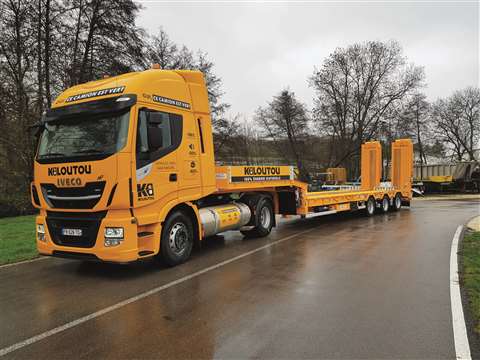
For example, a company like United Rentals in the US, or Loxam in Europe, will now have a selection of specialist rental divisions offering something beyond the core earthmoving equipment, such as compressors, generators, lighting towers and small tools that are typically held in rental fleets.
Specialist divisions
These specialist divisions encompass products such as aerial platforms, trenching and shoring, power, safety equipment, traffic management, pumps, portable accommodation, training and events (fencing, portable toilets etc.) In this vein, a recent Speedy acquisition wasn’t even a rental company, but a training business.
These divisions offer specialist knowledge, expertise and products. They also give rental companies the opportunity – so the strategy goes – to charge a premium.
For Sunbelt Rentals in the US, specialty business now represents almost a quarter of its total revenues. The company has been growing at compound rates of 20% over the last three years.
In some cases, the rental offering goes beyond pure products and moves into project management. A good example is Zeppelin Rental, the rental business of German-based Caterpillar dealer Zeppelin, which has rental operations in Germany, Austria, Slovakia and the Czech Republic.
Its ‘Baulogistik’ service offers contractors planning services for logistics, machines and personnel. It can provide site control facilities – managing access control for a site – set up a site with power and roadways, plan the scheduling of deliveries and, of course, manage the fleet of equipment. In essence, it offers ‘asset rentals’ (equipment) alongside ‘site solutions’, such as training, waste management and logistics planning. As well as benefitting the contractor, it gives Zeppelin Rental the opportunity to be present on a project from start to finish, and to potentially capture more business.
Digital technology

Alongside enhanced and widened product offerings, rental companies are now starting to exploit digital technology to help both themselves and their customers. This technology, as well as giving rental companies the tools to manage their fleets, can allow contractors to on- and off-rent equipment, view real-time data on equipment on rent, and manage invoicing in a paperless way.
Pierre Boels, CEO of Boels Rental and current President of the ERA, speaking at the recent International Rental Conference in China, told delegates that digital technology will have a major impact on rental.
“The internet connects us. And I’m not just talking about connecting people. Increasingly, equipment and machines are being linked through the Internet of Things,” he said.
“In the rental sector that produces a whole range of cost and time-saving solutions. At Boels, we are taking full advantage: we can now carry out preventive maintenance and service work more effectively. The new technology allows us to prevent breakdown, increase efficiency and reduce costs. In the near future, it will be even easier for our customers on building sites to connect and share our products. For them, time is money and the Internet of Things can help them save on both.”
Mr Boels added that data would also allow it to, “map out and analyse the behaviour, and especially the needs, of our customers. We use this knowledge to offer our customers the product range they want. And we can identify potential customers for a new product or service in no time.”
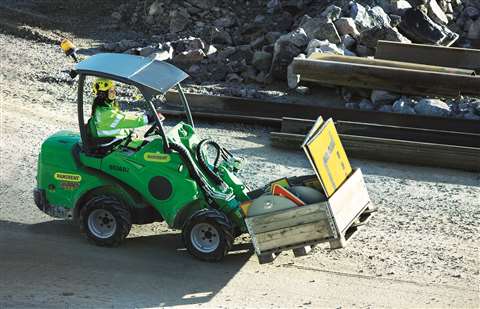
Rental company Ramirent is expanding through outsourcing agreements with contractors
There is one final piece in the expanding rental jigsaw, which is the trend towards the sharing economy. The European Rental Association argues that equipment rental is part of a more sustainable business model; it optimises the utilisation rate of equipment, prevents equipment being unused, limits the need for storage space, and minimises waste and material usage by recycling where possible.
The ERA says rental has the potential to contribute significantly to carbon reduction and has been making this case to the European Union – hoping to influence regulations that will promote the sharing economy – and has embarked on a major project to quantify the benefits of rental. It has engaged the Climate Neutral Group (CNG), a social venture established in 2002 by Foundation Doen and Triodos Bank, to carry out the study, with the results to be published later this year.
As the ERA’s President, Pierre Boels, puts it, “These days, more and more people prefer to ‘share’ rather than ‘own’. They want to pay for use instead of paying for ownership. This trend has been dominating the consumer market for a few years now, with developments like Spotify, Uber, Mobike and Airbnb.
“And now sharing has become much more common in business as well. Contractors no longer want a huge fleet of equipment on their balance sheet. Ownership, maintenance and logistics are not their core competence. The services of our industry are obviously a perfect match with this trend.”
Rental companies will be no doubt be hoping that more and more contractors will see things the same way.


